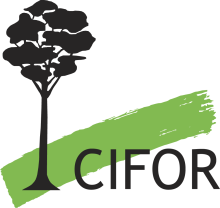Resource information
This paper examines the conversion of Indonesia’s natural forests to timber and tree crop plantations, notably oil palm. The principal aims are to understand the impact of this process on natural forest and on forest-dwelling people, and to establish whether past and present policies governing this process are meeting their objectives. The key findings of the study are: (1) timber plantation development policies legitimate the degradation of natural forests; (2) subsidies are ultimately unnecessary for the development of timber plantations; (3) tree crop plantation developers request more land than they need to obtain added profits from the timber on lands to be cleared; (4) overlapping and chaotic forest land use classification systems work to the benefit of private plantation developers at the expense of the rights and livelihoods of forest-dwelling people; and (5) resolution of these problems is hampered by the persistence of the government’s top-down approach and non-recognition of traditional land use rights. It is recommend that: remaining natural forests on conversion forest lands be reclassified as permanent forests; plantation development take place only on unproductive production forest lands; and forest land use redistribution be devolved to the local level.



